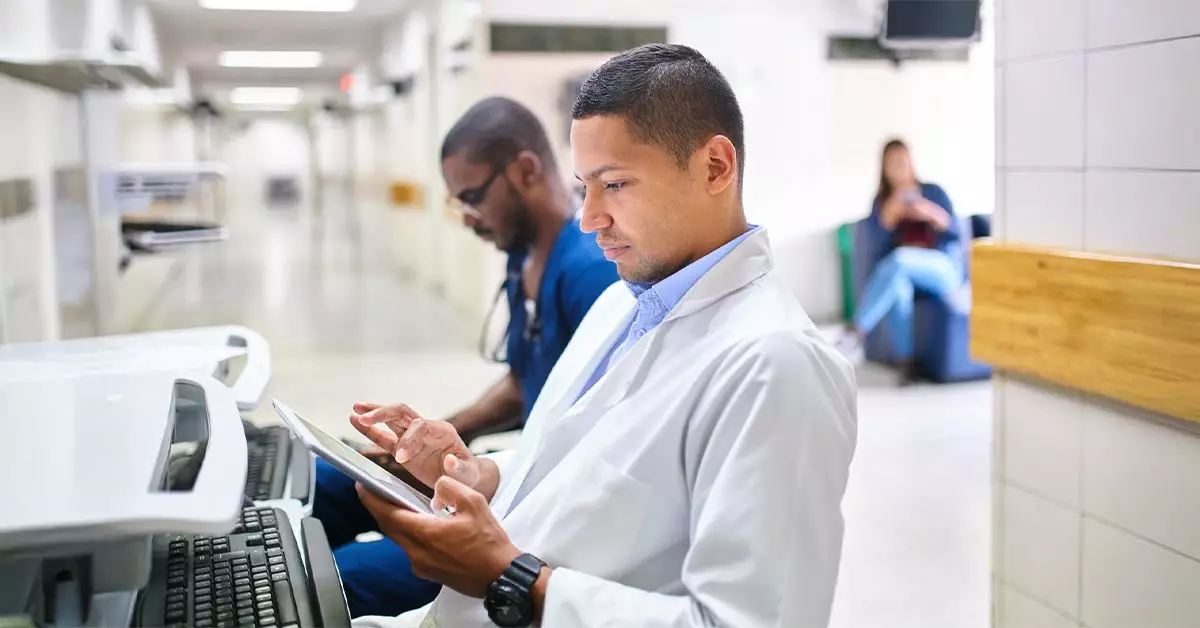Acute lymphoblastic leukemia (ALL) is a complex and aggressive form of blood cancer characterized by an overproduction of immature white blood cells in the bone marrow. This condition leads not only to a range of debilitating symptoms such as extreme fatigue and an increased likelihood of bleeding or bruising but also represents a significant challenge in terms of treatment due to its rapid progression. While ALL is relatively rare, making up less than 0.5% of all cancer cases in the United States according to the American Cancer Society, its impact on those afflicted is considerable.
Given the intricate nature of hematologic malignancies, hematologist-oncologists play a pivotal role in the treatment journey of individuals diagnosed with ALL. These specialists combine expertise in both hematology (the study of blood) and oncology (the study of cancer), making them well-suited to develop tailored treatment strategies for patients. Their experience and familiarity with ALL can significantly influence the patient’s prognosis and quality of life.
For those seeking treatment for ALL, identifying a qualified hematologist-oncologist is a critical first step. Patients who live in areas with limited access to specialized care have several options. They can seek recommendations from primary care physicians, contact local cancer centers, or utilize various specialized directories such as those provided by the American Society of Hematology or the American Board of Medical Specialties.
It’s important for patients to consider factors such as the doctor’s experience with ALL, the accreditation of the treatment facility, and even the availability of a support team, including case managers and social workers, who can address the multifaceted needs of patients. As many health insurance plans necessitate referrals for specialists, it’s advisable for patients to consult their insurers about coverage policies for both treatment and any needed second opinions.
Once an appointment with a hematologist-oncologist is scheduled, preparation can significantly enhance the consultation experience. Patients should come equipped with relevant medical history, a record of symptoms, and a list of questions. Key inquiries might include details regarding the specialist’s experience with ALL, their treatment protocols, and the availability of support staff.
Recording sessions or bringing a trusted friend or family member to take notes can be immensely beneficial, as the information discussed can be complex and overwhelming. It’s crucial for patients to articulate their understanding of the diagnosis and treatment options and to seek clarity on any points of confusion.
In the realm of cancer treatment, especially in cases involving aggressive diseases like ALL, obtaining a second opinion can provide patients with peace of mind and additional insights into their treatment options. Factors prompting the pursuit of a second opinion may include uncertainties about the severity of the diagnosis, confidence in exploring all treatment avenues, or simply a desire to confirm the current treatment plan.
Patients are encouraged to investigate their insurance policies as most providers cover the expense of a second opinion. Engaging with multiple specialists may open avenues to alternative treatments or clinical trials that may not be offered in every practice, particularly for rare leukemia subtypes.
While the technical aspects of treating ALL are essential, addressing the comprehensive needs of patients goes beyond mere medical interventions. Hematologist-oncologists often collaborate with a multidisciplinary team that may include social workers, psychologists, and nutritionists, ensuring a well-rounded approach to patient care. This holistic perspective is crucial, as battling cancer can be a taxing emotional and physical journey.
Patients should not hesitate to discuss concerns about their emotional well-being or seek assistance in understanding the intricacies of their treatment and lifestyle modifications during consultations. Effective communication fosters a better understanding of what to expect during treatment and the challenges faced along the way.
With advancements in treatment options and personalized medicine, the outlook for individuals diagnosed with ALL has improved markedly, particularly for children, many of whom achieve full recovery. Factors such as age, genetic characteristics, and whether an individual is undergoing treatment for the first time all influence the treatment’s success and prognosis.
Navigating a diagnosis of acute lymphoblastic leukemia necessitates a well-informed and proactive approach to care. Engaging with a qualified hematologist-oncologist is essential in formulating a personalized and effective treatment plan. Patients and their families should feel empowered to ask questions, seek second opinions, and access the support they need throughout their treatment journey. The road may be challenging, but with the right resources and expertise, individuals facing ALL can find hope and healing in their journey.

